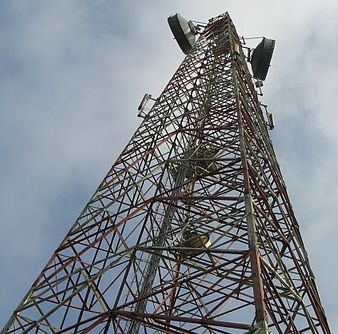SC caveat on spectrum auction may affect bidders
27 Feb 2015
In a ruling that may create further uncertainty among telecom operators about the spectrum auction scheduled for next week, the Supreme Court on Thursday refused to stay the process of spectrum auction scheduled for 4 March, but added the caveat that the outcome of the auction would be subject to the court's final decision.
 Hearing a bunch of petitions by cellular operators challenging certain conditions of the bidding process, a bench headed by Justice Dipak Misra, said no rights would go to the successful bidder before the court's ruling.
Hearing a bunch of petitions by cellular operators challenging certain conditions of the bidding process, a bench headed by Justice Dipak Misra, said no rights would go to the successful bidder before the court's ruling.
The court has scheduled the matter for further hearing on 26 March.
Recently, in a separate case in connection with the auction, Reliance Telecom and Bharti Airtel had argued in the SC that the government's decision to fix the minimum bandwidth at 5 MHz, out of a total 8.8 MHz auctioned for the northeast, was lopsided.
The apex court now says that even though it has found inconsistencies in the stand taken by the government, it is allowing the auction of 2G telecom spectrum as scheduled - but added that the outcome will not be finalised without its permission.
While staying a 12 February interim order of the Tripura High Court, the apex court bench of Justice Dipak Misra and Justice Adarsh Kumar Goel said no bidder, if successful, shall claim any equity in the bidding process.
"Let the auction go on and let us see what emerges from it," the bench said. "There is prima facie inconsistency in the stand of the government, but that is not a ground for staying the auction."
The order would be applicable to all the 17 circles for which Notice Inviting Applications was issued on 9 January.
The government told the court the existing TSPs (Dishnet and state-owned BSNL) holding 4.4 MHz of spectrum each in the North-Eastern States and whose licences were retiring in 2017 could top them up by bidding for a minimum of 0.6 MHz to take it 5 to MHz.
However, what troubled the court was solicitor general Ranjit Kumar's submission that if such TSPs do not succeed in retaining their 4.4 MHz spectrum after 2017, they will still continue to hold 0.6 MHz for next 20 years and could trade in it.
As the government counsel said this, P Chidambaram, appearing for Reliance Telecom, told the court that "If spectrum trading policy was there, then I will not be here".
Holding that top-up spectrum should be co-terminus with the existing spectrum of the TSPs whose licences were retiring in a few years' time, the court found it unacceptable that TSPs could trade the top-up spectrum for which guidelines are yet to be framed.
"How can there be private trading in spectrum," the court asked the government. "Private trading in top-up spectrum would be discriminatory."
Reiterating that the top-up spectrum should be co-terminus with the spectrum bundled with the existing licences, the court asked, "Why can't it be co-extensive with the existing licence or spectrum? It is a rational situation. Policy must be consistent. You must reconcile every other thing to 5 MHz.
"That is where the fault comes. Natural corollary is to make top-up spectrum ex-extensive with existing 4.4 MHz," the court said wanting a specific direction on "topping-up for how long and how far."
The court said that if TSPs "holding 4.4 spectrum in 900 bands in the north-eastern states bid for 5 MHz then they can continue for 20 years but if they bid for less than 5 MHzA then it will be co-terminus with their existing licences / spectrum".
In the course of his submissions, senior counsel Chidambram told the court that only one service provider - Dishnet - would be the beneficiary of this policy.
He said only Dishnet -- from the existing licence holders whose licence will continue -- has made the bids. He said that if Dishnet makes bid for 4 MHz spectrum then both the existing service providers -- Reliance Telecom and Bharti Hexacon -- would be knocked out of field.
The court order came as it adjourned hearing on two petitions by the government challenging the 12 February Tripura High Court order. The court also transferred to itself four matters before the Allahabad, Delhi and Karnataka high courts wherein Reliance Telecom, Bharti Telecom, and Idea Cellular have contested tender conditions.
While staying the proceedings in four High courts, the apex court also barred all its subordinate courts, including the TDSAT, from entertaining any plea rooted in the auction of 2G spectrum.


















